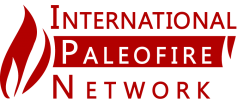IPN - International Paleofire Network

To continue the work of PAGES' Global Paleofire Working Group 2, which sunsetted in December 2019, the community has launched the International Paleofire Network (IPN), dedicated to paleofire science promotion and to paleofire open-access database management and development.
Utlimately, this venue will serve as an open exchange platform for the support and launch of innovative paleofire projects.
The project is envisaged to run for 10 years - from 2020-2030.
Overview
Destructive wildfires in 2019 and 2020 in the Mediterranean, Indonesia, Amazon-rainforest, Austrailia, western North America, and in the boreal regions received worldwide media attention, raising debates about the causes and risks associated with wildfire disturbance and changing fire regimes.
Fire is a key process for ecosystem function, and a critical process in carbon cycling and radiative forcing. The need for enhanced emergency planning is growing, as changes in climate alter landscape disturbaces.
In response, governments and policy makers seek to increase capacity within wildland fire science, and in so doing increase national-scale preparedness.
Examples of important research topics include wildfire risk assessment and reduction, climate change and socioeconomic vulnerabilities, improving wildfire information systems, smoke monitoring, modeling wildfire growth and behavior, community protection, and recognition of Indigenous fire knowledge.
Paleoenvironmental data can provide insight into ecosystem and disturbance regime change as well as aid the development of ecosystem and climate models. Given that future changes in climate are projected to be of similar (or greater) magnitude to those of the Holocene, paleoenvironmental studies can also directly inform about responses to changes in climate.
Background
In the past decade, PAGES' Global Paleofire Working Group (see Phase 1 here, Phase 2 here, and the official website here) developed and interrogated regional and global-scale fire history records to create a public-access database.
The goals were to use crowd-sourced data collection, analytical approaches with open-source tools, and model experiments to engage paleofire experts, fire ecologists, fire modelers, and landscape managers through projects and workshops.
Working group products have emphasized the controls and impacts of fire in the Earth system, but also new insights have emerged for understanding and managing fire under rapidly changing global conditions. These include the linkages between fires, climate-driven fuel changes, traditional human land uses, modern landscape management, and biodiversity conservation.
Policy Brief
In December 2019, 30 international colleagues released a Policy Brief discussing how the integration of traditional ecological knowledge and long-term ecology could better support future decisions on fire-risk management.
Objectives and goals
The mission of IPN is to steer the Global PaleoFire Database to provide global fire history datasets for research and ecosystem management opportunities. IPN will also nurture ongoing and future paleofire research, particularly in the realm of the environmental and sustainability sciences, across a range of spatial and temporal scales.
IPN aims to develop a conduit of cooperation that integrates scientists working on long-term fire dynamics, ecosystems managers, practitioners and policymakers to build the capacity for fire risk assessment while delivering valuable mitigation and adaptation trade-offs.
IPN leaders will continue to identify long-term strategies for conservation and fire-management priorities including assessment of:
- the relationships between climate, land cover, land use and fire regimes;
- ecosystem recovery rates after fires with varying severity;
- the optimum fire regimes needed to achieve management objectives for biodiversity conservation;
- the effects of prescribed burning (and other land-management practices) on wildfires particularly at the Wildland Urban Interface;
- evaluation of post-fire environmental change and recovery time.
To date, our understanding of the role of fire for future global changes is limited by methodological and scientific challenges that require a larger network of researchers at the interface of environmental and social sciences.
Inherent challenges include:
- calibrating fire proxy accumulations against modern fire regime metrics to reduce uncertainties in fire reconstructions;
- assessing pre-industrial burning derived from calibration results to inform current estimates of climate sensitivity in Earth system models;
- exploring the role of fire for sustaining biodiversity hotspots by comparing paleofire and vegetation studies;
- translating the evidence from paleodata into recommendations for environmental policy e.g. implementing them to improve fire danger rating systems.
Group leaders
Below is the core group in charge of IPN development, communication and management. The core group welcomes all motivated persons who want to invest time in IPN's mission and welcomes everyone who is in paleofire-science research and applications. ECR = early-career researcher.
- Carole Adolf, University of Oxford, UK (ECR)
- Julie Aleman, Université de Montreal, Canada (ECR)
- Olivier Blarquez, Université de Montreal, Canada
- Kendrick Brown, Natural Resources Canada, Canadian Forest Service, Canada
- Daniele Colombaroli, Royal Holloway University of London, UK (IPN General Secretary)
- Elisabeth Dietze, A. Wegener Institute, Helmholtz Research Centre, Germany (ECR)
- Donna Hawthorne, University of St Andrews, UK (ECR)
- Yiyin Li, Peking University, China
- Katarzyna Marcisz, Adam Mickiewicz University, Poland (ECR)
- Mitchell Power, University of Utah, USA
- Estelle Razanatsoa, University of Cape Town, Southern Africa (ECR)
- Emma Rehn, James Cook University, Australia (ECR)
- Boris Vannière, CNRS - Université de Franche-Comté, France
Expected output and products, including data stewardship
- An up-to-date and FAIR Global Paleofire Database
- Innovative research projects on fire history, fire ecology, fire drivers and fire practices
- Paleofire and fire research workshops, symposiums and congresses
- Providing training/support for the next generation of palaeofire researchers
- Fire history products designed for stakeholders and society
- Establishment of new stakeholder engagement opportunities
Additional support
IPN is also supported by the University of Utah and Natural History Museum of Utah, USA, University of Franche-Comté, France, Royal Holloway University of London, UK, and Université de Montreal, Canada,
Further information
Find out more on the official website: https://paleofire.org/
Email the IPN leaders: contactpaleofire.org (contact[at]paleofire[dot]org)
Follow IPN on Twitter: https://twitter.com/PaleofireWG